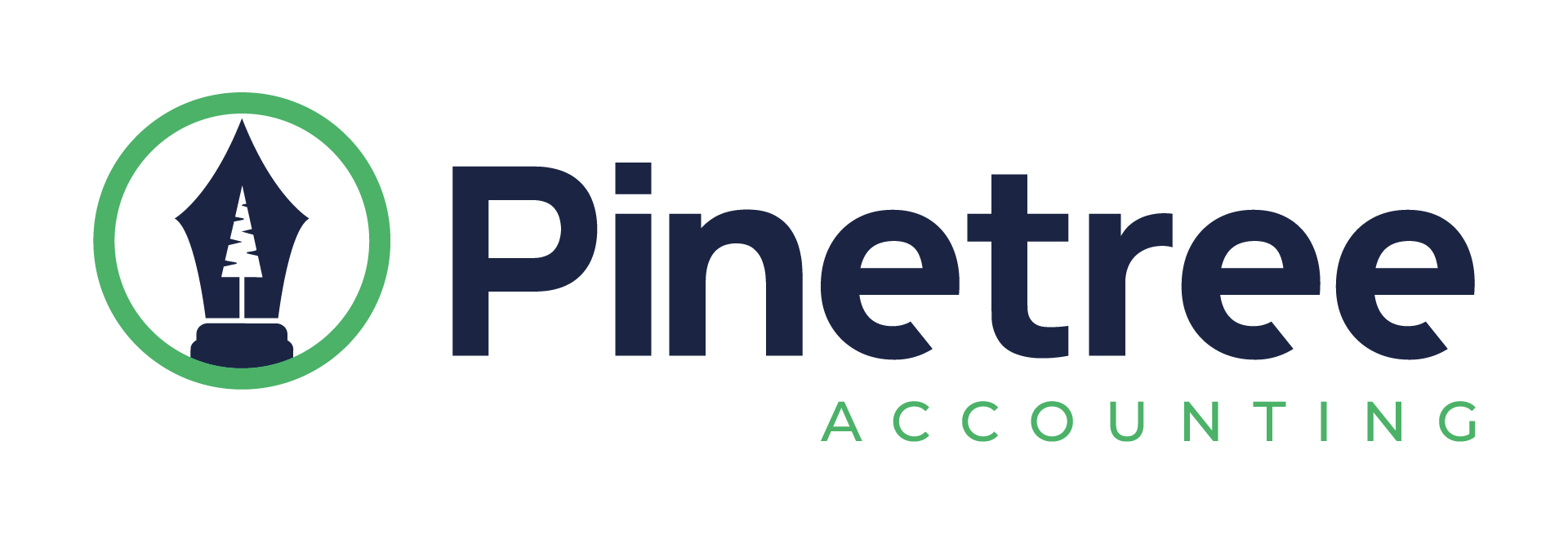Hong Kong’s real estate market is projected to handle approximately 80,000 property transactions in 2025, creating substantial revenue opportunities for estate agencies and property professionals across Central, Kowloon, and the New Territories. However, behind every successful commission lies a critical foundation that many agents overlook: meticulous bookkeeping practices. For real estate professionals managing irregular commission income, high transaction volumes, and increasingly stringent Inland Revenue Department (IRD) compliance requirements, implementing robust bookkeeping systems is essential for sustainable business success and regulatory compliance.
Understanding Unique Financial Challenges in Real Estate
Real estate agencies face distinct bookkeeping challenges that set them apart from other businesses. The commission-based revenue model creates dramatic cash flow fluctuations, with agents potentially earning HK$500,000 from a luxury property sale in Mid-Levels in one month followed by minimal income in the next. Research indicates that 40% of small businesses experience payment delays of 30-60 days, meaning property agents might wait two months for a HK$200,000 commission while still covering HK$30,000 in monthly overhead costs for office space in Mong Kok or Wan Chai.
This irregular income pattern demands sophisticated cash flow forecasting and reserve management. Unlike businesses with predictable monthly revenue, real estate professionals must plan for extended periods without income while maintaining readiness to capitalize on opportunities when they arise. Proper bookkeeping provides the visibility needed to navigate these fluctuations confidently.
Transaction volume adds another layer of complexity. Property professionals handling 20-30 transactions annually must accurately record multiple entries for each deal, including initial deposits, commission payments, agency fees, referral payments, and expense allocations. Without systematic processes, even minor errors can result in financial discrepancies exceeding HK$10,000 annually.
Complying with IRD Record-Keeping Requirements
The Inland Revenue Ordinance Section 51C mandates that every person carrying on a trade, profession, or business must maintain sufficient records in English or Chinese to enable accurate assessment of profits. For real estate agencies, this legal requirement extends beyond simple income tracking.
Required records include:
- Books of accounts recording all receipts and payments
- Vouchers, bank statements, invoices, and receipts for every transaction
- Records of assets and liabilities related to the business
- Daily entries of all money received and expended
- Detailed service records enabling verification of commission sources
- Documentation supporting all claimed business expenses
All records must be retained for at least seven years from the transaction date. Failure to comply without reasonable excuse can result in fines up to HK$100,000. Records may be maintained in physical or electronic form, but if stored electronically, they must remain accessible and comply with the Electronic Transactions Ordinance.
Professional bookkeeping and accounting services ensure these requirements are met systematically, reducing compliance risk while providing real-time financial visibility.
Implementing Double-Entry Bookkeeping Systems
While small agencies might initially consider single-entry bookkeeping for its simplicity, this method records transactions only once and fails to track assets, liabilities, or equity comprehensively. For real estate businesses handling substantial commission amounts and multiple transaction types, double-entry bookkeeping provides essential accuracy and completeness.
Double-entry bookkeeping records each transaction twice—once as a debit and once as a credit in different accounts. This method automatically creates checks and balances that catch errors while providing a complete financial picture including assets, liabilities, income, expenses, and equity.
For example, when receiving a HK$200,000 commission from a property sale in Admiralty:
- Debit: Bank Account (Asset increases by HK$200,000)
- Credit: Commission Income (Revenue increases by HK$200,000)
This dual recording ensures that accounts remain balanced while providing detailed financial insights essential for business planning and tax compliance.
Managing Commission Income Tracking
Commission tracking represents the heart of real estate bookkeeping. Each property transaction generates multiple income streams that must be recorded accurately, including:
- Primary commission from property sales or leases
- Co-brokerage splits with other agencies
- Referral fees paid or received
- Additional service fees for property management or consultation
Agencies must establish systematic processes for recording commission agreements at transaction commencement, tracking payment milestones, and reconciling actual receipts against expectations. This becomes particularly important when dealing with payment terms that extend weeks or months beyond transaction completion.
Commission Tracking Best Practices
| Practice | Implementation | Benefit |
|---|---|---|
| Unique Transaction IDs | Assign reference numbers to each deal | Simplifies tracking and prevents confusion |
| Commission Agreements Documentation | Store signed agreements digitally | Provides proof of payment terms |
| Milestone Tracking | Record deposits, completions, and final payments separately | Enables accurate cash flow forecasting |
| Split Commission Records | Document co-broke arrangements clearly | Prevents disputes and ensures accurate income allocation |
| Payment Reconciliation | Match bank deposits to specific transactions | Identifies delays and discrepancies quickly |
Modern accounting software can automate much of this tracking, integrating with Customer Relationship Management (CRM) systems to link property transactions directly to financial records.
Categorizing and Tracking Tax-Deductible Expenses
Real estate professionals incur numerous business expenses that reduce taxable income when properly documented and categorized. However, the Inland Revenue Department scrutinizes expense claims carefully, making accurate categorization and comprehensive documentation essential.
Common deductible expenses for real estate agencies include:
Occupancy Costs: Office rent in Central, Causeway Bay, Tsim Sha Tsui, or other commercial districts, utilities, property management fees, and maintenance expenses for business premises.
Marketing and Advertising: Property listings, online advertising, print materials, signage, open house expenses, and digital marketing campaigns.
Professional Services: Legal fees, accounting services, Estate Agents Authority (EAA) licensing fees, professional development courses, and industry association memberships.
Transportation: Vehicle expenses for property viewings, fuel costs, parking fees, MTR and taxi fares for client meetings, and travel to property inspections throughout the New Territories.
Communication: Mobile phone plans, internet services, website hosting, CRM subscriptions, and communication tools.
Office Expenses: Stationery, office supplies, computer equipment, software subscriptions, and furniture.
Entertainment: Client meals and entertainment directly related to specific transactions, subject to IRD limitations.
Each expense category requires proper documentation including receipts, invoices, and records explaining the business purpose. For expenses that combine personal and business use, such as mobile phones or vehicles, agents must maintain records supporting the business-use percentage claimed.
Professional tax returns services ensure all legitimate deductions are claimed while maintaining full compliance with IRD requirements.
Reconciling Bank Accounts Regularly
Bank reconciliation—comparing bookkeeping records against bank statements to ensure they match—represents one of the most critical bookkeeping controls. For real estate agencies, monthly reconciliation of HSBC, Bank of China, Hang Seng Bank, or other accounts serves multiple purposes:
- Identifies errors in recording transactions
- Detects unauthorized transactions or potential fraud
- Verifies that all commission payments have been received
- Ensures expense payments have cleared properly
- Catches bank errors or unexpected fees
The reconciliation process involves:
- Obtaining monthly bank statements for all business accounts
- Comparing each transaction to bookkeeping records
- Identifying and investigating discrepancies
- Recording any bank fees, interest, or transactions not yet in the books
- Ensuring the adjusted bank balance matches the bookkeeping balance
Unreconciled accounts create a false sense of financial position, potentially leading to overdrafts, missed payments, or inaccurate cash flow projections. For agencies handling multiple transactions monthly, falling behind on reconciliation can create significant problems requiring extensive time to resolve.
Planning for Irregular Cash Flow
The commission-based business model creates cash flow challenges that require strategic planning. Real estate professionals must develop systems for managing financial obligations during lean periods while avoiding excessive spending during high-income months.
Effective cash flow management strategies include:
Reserve Fund Management: Setting aside a portion of each commission to cover 3-6 months of operating expenses. This reserve provides security during slow periods and reduces financial stress.
Expense Timing: Where possible, scheduling major expenses during anticipated high-income periods rather than during predictable slow seasons like summer or around Chinese New Year.
Commission Pipeline Tracking: Maintaining visibility into deals at various stages to forecast incoming commission payments and plan accordingly.
Diversification: Developing multiple income streams such as property management, rental services, or consultation to reduce dependence on sales commissions alone.
Credit Facilities: Establishing business credit lines during profitable periods to provide backup options during cash flow gaps, though these should be used sparingly due to interest costs.
Professional payroll services ensure that staff salaries and statutory requirements like MPF contributions are handled consistently regardless of revenue fluctuations.
Navigating Enhanced AML Compliance Requirements
Strengthened anti-money laundering regulations implemented in 2025 significantly impact real estate agencies. Property transactions, particularly those involving high values or overseas buyers, face increased scrutiny requiring detailed documentation and reporting.
Estate agencies must now:
- Conduct enhanced customer due diligence for transactions exceeding HK$5 million
- Maintain detailed Know Your Customer (KYC) records including identity verification, source of funds documentation, and beneficial ownership information
- Implement suspicious transaction monitoring systems
- Report suspicious activities to the Joint Financial Intelligence Unit
- Retain compliance records for at least seven years
Non-compliance carries serious consequences including fines of HK$10,000 or more per violation, potential license suspension, and criminal liability in severe cases. With approximately 10% of high-value transactions subject to enhanced scrutiny, agencies handling luxury properties must implement robust compliance systems.
Bookkeeping systems should integrate compliance documentation with financial records, creating audit trails that demonstrate regulatory adherence. Professional corporate secretarial services help agencies maintain proper compliance documentation and navigate evolving regulatory requirements.
Leveraging Cloud-Based Accounting Technology
Digital transformation is reshaping real estate bookkeeping, with approximately 75% of small businesses expected to adopt cloud-based accounting platforms by 2025. These technologies offer significant advantages for property professionals who need financial access while meeting clients at properties, working from home, or traveling.
Cloud-based accounting systems provide:
- Real-time financial data accessible from any device with internet connection
- Automatic bank feed integration with major local banks
- Mobile receipt capture using smartphone cameras
- Integration with CRM and property management systems
- Automated invoice generation and payment reminders
- Multi-user access with appropriate permission controls
- Automatic data backup preventing loss from hardware failures
Leading platforms such as Xero, QuickBooks, and MYOB offer features specifically valuable for real estate agencies, including project-based tracking that can be adapted for individual property transactions, customizable invoice templates, and detailed reporting capabilities.

Preparing for Annual Audits
Unless specifically exempted, all companies must have annual financial statements audited by a certified public accountant, regardless of company size. Real estate agencies structured as limited companies face this requirement, making year-round bookkeeping accuracy essential.
Preparing for audits requires:
Complete Transaction Documentation: Every income and expense entry must be supported by appropriate source documents including invoices, receipts, contracts, and bank statements.
Accurate Classification: Transactions must be properly categorized according to Hong Kong Financial Reporting Standards (HKFRS), ensuring income and expenses appear in appropriate financial statement categories.
Bank Reconciliations: All accounts must be fully reconciled with no unexplained discrepancies between bookkeeping records and bank balances.
Asset Registers: Detailed records of business assets including computers, furniture, vehicles, and equipment with original purchase documentation and depreciation calculations.
Related Party Transactions: Clear documentation of any transactions between the agency and directors, shareholders, or related entities.
Compliance Records: Evidence of statutory filing compliance including business registration renewals, company annual returns, and employment-related filings.
Agencies that maintain accurate bookkeeping throughout the year find the audit process straightforward and minimally disruptive. However, those with disorganized records face substantial time investment, potential audit adjustments, and higher professional fees as auditors spend additional time reconstructing financial information.
Professional audit arrangement services streamline the process by conducting pre-audit reviews, organizing documentation, and serving as liaison with auditors.
Establishing Proper Business Structure
Real estate professionals beginning their careers face important decisions about business structure that significantly impact bookkeeping requirements, tax obligations, and personal liability protection. Common options include:
Sole Proprietorship: The simplest structure where the individual and business are legally inseparable. Bookkeeping requirements are less stringent, and annual audits are not required for sole proprietors. However, the individual assumes unlimited personal liability for business debts and obligations.
Partnership: Similar to sole proprietorship but involving multiple individuals. Partners share profits, losses, and liability according to partnership agreements. Bookkeeping must clearly track each partner’s capital contributions, profit distributions, and drawings.
Limited Company: Provides liability protection separating personal and business assets. Companies face more stringent bookkeeping and compliance requirements including annual audits, financial statement preparation according to HKFRS, and statutory filings with the Companies Registry. However, they offer tax planning opportunities, enhanced credibility, and clearer succession planning.
Many successful estate agents begin as sole proprietors or employees of agencies before establishing limited companies as their business scales. Professional company formation services guide entrepreneurs through structure selection, registration processes, and initial bookkeeping system setup.
Creating Effective Financial Reports
Beyond compliance requirements, bookkeeping serves strategic purposes by generating financial reports that inform business decisions. Real estate professionals should regularly review key reports including:
Profit and Loss Statement: Summarizes income and expenses over specific periods, revealing profitability trends and highlighting expense categories consuming disproportionate resources.
Balance Sheet: Shows the agency’s financial position at a specific date, listing assets, liabilities, and equity. This snapshot reveals the business’s net worth and financial stability.
Cash Flow Statement: Tracks money movement through the business, categorizing cash flows from operating activities, investing activities, and financing activities. For commission-based businesses, this report is particularly valuable for understanding liquidity patterns.
Commission Analysis Report: Custom reports tracking commission sources by property type, district, price range, or referral source provide insights into the most profitable business segments.
Expense Analysis Report: Detailed breakdowns of spending by category help identify cost control opportunities and ensure marketing investments generate appropriate returns.
Regular financial review—monthly for active agencies—enables proactive business management rather than reactive problem-solving. Comparing actual results against budgets or previous periods highlights positive trends to amplify and negative trends requiring intervention.
Managing Multi-Agent Commission Structures
Agencies employing multiple agents or operating with independent contractor arrangements face additional bookkeeping complexities around commission splits, expense sharing, and performance tracking.
Effective systems must:
- Track each agent’s transactions separately while consolidating for agency-level reporting
- Calculate commission splits according to employment agreements or independent contractor terms
- Allocate shared expenses appropriately across agents
- Monitor individual agent profitability and productivity
- Handle different commission structures that may vary by agent experience level or property type
- Process payments to agents according to agreed schedules while withholding applicable taxes or MPF contributions
Employment structures significantly impact bookkeeping and tax obligations. Employees require payroll processing with MPF contributions and tax withholding, while independent contractors receive commission payments without withholding but may require annual reporting to IRD.
Clear agreements, systematic tracking, and transparent reporting reduce disputes while ensuring compliance with employment and tax regulations.
Planning for Tax Obligations
Real estate agencies and property professionals face multiple tax obligations requiring accurate bookkeeping for compliance:
Profits Tax: Charged at 16.5% for corporations or 15% for unincorporated businesses on profits arising in or derived from the territory. Proper bookkeeping ensures accurate profit calculation and supports all deductible expense claims.
Salaries Tax: Individual agents earning employment income pay salaries tax on a progressive scale from 2% to 17%, or at the standard rate of 15% if lower. Agents must track employment income separately from business income if they have both.
Property Tax: Agencies owning property used for business or investment purposes may be subject to property tax at 15% on rental income after a 20% allowance for repairs and maintenance.
Stamp Duty: While typically paid by property buyers, agencies must understand stamp duty implications for client advisory purposes and ensure proper documentation for transactions where they advance payments.
Strategic tax planning opportunities exist for property professionals, including:
- Timing income and expense recognition to optimize tax positions
- Structuring business ownership to utilize corporate tax rates and two-tiered profits tax rates
- Maximizing legitimate deductions through comprehensive expense tracking
- Contributing to recognized retirement schemes for tax deductions
- Utilizing tax losses from unprofitable years to offset future profits
Professional tax advisors work with bookkeeping data to identify planning opportunities and ensure full compliance while minimizing tax obligations within legal frameworks.
Implementing Internal Controls
As agencies grow, implementing internal controls becomes essential to prevent errors, detect fraud, and ensure bookkeeping accuracy. Basic controls appropriate for real estate agencies include:
Segregation of Duties: Different individuals should handle transaction execution, recording, and reconciliation. For example, the person collecting commission payments should not be the same person reconciling bank accounts.
Approval Requirements: Significant expenses should require principal or management approval before payment, with documented approval trails.
Regular Reconciliations: Bank accounts, commission receivables, and expense accounts should be reconciled regularly by someone independent of transaction processing.
Access Controls: Accounting software should have user permissions limiting access based on roles, preventing unauthorized changes to financial records.
Documented Procedures: Written procedures for common bookkeeping tasks ensure consistency and facilitate training of new staff.
Physical Security: Checkbooks, company seals, and access to financial systems should be properly secured.
Even small agencies with limited staff can implement basic controls. For example, the principal agent can review and approve all transactions weekly even if another staff member handles daily bookkeeping entry.
Conclusion
Effective bookkeeping forms the foundation of successful real estate agencies and property professional practices. Beyond mere compliance with legal requirements, systematic financial management provides the visibility needed to navigate irregular commission income, optimize tax positions, track profitability by transaction type, and make informed business decisions. As regulatory requirements intensify and competition increases, agencies that invest in robust bookkeeping systems position themselves for sustainable growth and long-term success.
However, maintaining professional-standard bookkeeping while focusing on property transactions and client relationships presents practical challenges for busy real estate professionals. Many successful agencies recognize that outsourcing specialized financial functions enables them to concentrate on their core competencies while ensuring expert handling of compliance and strategic financial matters.
Partner with Pinetree for Expert Real Estate Accounting
At Pinetree, we understand the unique financial challenges facing real estate agencies and property professionals across Central, Kowloon, and the New Territories. Our specialized bookkeeping and accounting services are designed specifically for the real estate industry, providing:
- Commission-based income tracking that handles irregular cash flows and multiple payment sources
- Expense optimization ensuring you claim every legitimate deduction while maintaining full IRD compliance
- Cloud-based systems giving you real-time financial visibility from any location—whether you’re at property viewings in Repulse Bay or client meetings in Central
- AML compliance support through our corporate secretarial services ensuring your documentation meets 2025 regulatory requirements
- Seamless audit preparation with our audit arrangement services making year-end processes efficient and stress-free
- Strategic tax planning through expert tax returns preparation that minimizes obligations legally
- Payroll management via professional payroll services handling employee and contractor payments with full MPF and IRD compliance
Whether you’re an individual agent considering company formation to formalize your practice or an established agency looking to upgrade financial management systems, Pinetree provides tailored solutions that scale with your business.
Contact Pinetree today to discover how our real estate accounting expertise can free you to focus on closing deals while we handle your financial foundations with precision and professionalism.





